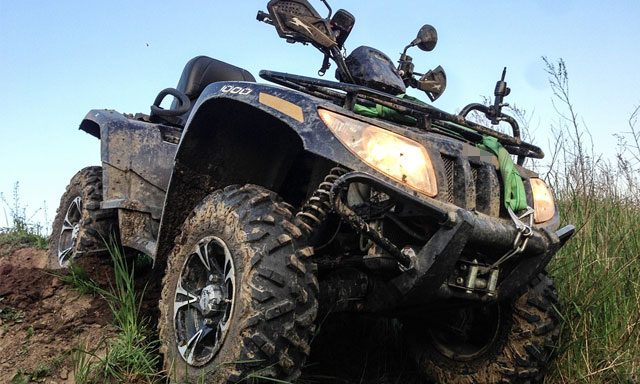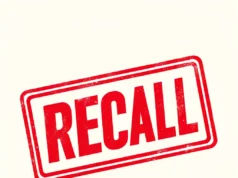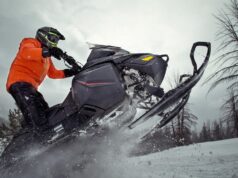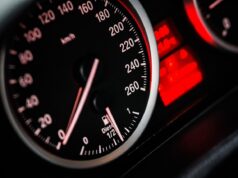
Why have there been so many recalls on All-Terrain Vehicles recently?
While the staggering number of ATV recalls in the past few years is clearly a cause for concern, the truth is that these recalls were not related to any one single issue.
There are many reasons why these ATVs were recalled, but one thing is for certain: all of these recalls are the direct result of issues related to rider safety.
There have been a substantial number of all-terrain vehicles recalled over the past three years. The following list identifies some of the vehicles that were recalled, and includes information about each recall.
ATV Recalls Issued From 2015 to 2018
Polaris ACE
On October 17, 2017, Polaris issued a recall for all model year 2014 through 2016 Polaris ACE 325 recreational off-highway vehicles (ROVs). The recall was issued to address problems with the exhaust header pipe, which can crack and release hot exhaust gases into the engine compartment, posing fire and burn hazards. This recall is thought to affect around 6,300 units in the U.S.
Polaris General
On March 2, 2017, a recall was issued for model year 2016 and 2017 Polaris GENERAL 1000 recreational off-road vehicles (ROVs). The recall was issued because the engine could misfire, and because the temperatures of the exhaust and nearby components could lead to the melting of components. A contaminated brake master cylinder could also lead to brake drag, which could pose both burn and fire hazards.
A few months later on August 22, 2017, another recall was issued for all model year 2017 Polaris GENERAL Base and GENERAL Hunter two-seat, side-by-side recreational off-highway vehicles. The reason for the recall was that inconsistent tire pressure information could result in improperly-inflated tires, posing a crash hazard.
On October 30, 2017, Polaris issued yet another recall for model year 2016 and 2017 Polaris General 2- and 4-seat side-by-side recreational off-highway vehicles due to reports of the steering wheel shaft shifting and detaching while in use, resulting in a loss of control and crash hazard.
Polaris Ranger
On June 28, 2016, a recall was issued for the 2015 and 2016 model year Polaris Ranger 570 recreational off-highway vehicles (ROVs) due to their tendency to overheat during heavy engine loading, high outdoor temperatures, and during slow-speed intermittent use, which could lead to a fire.
On September 15, 2016, a recall was issued for all model year 2014 Polaris Ranger XP 900, XP 900 EPS, and CREW 900 recreational off-highway vehicles (ROVs) because the heat shield could fall off the vehicle, thus posing fire and burn dangers for riders.
On April 13, 2017, a similar recall was issued for all model year 2015 Polaris Ranger XP 900, XP 900 EPS, and CREW 900 recreational off-highway vehicles (ROVs) due to the same heat shield issue.
Polaris RZR
On July 23, 2015, a recall was issued for model year 2015 Polaris Youth RZR® 170 EFI recreational off-highway vehicles with model number R15YAV17AA/AF and VINs between RF3YAV170FT000076 and RF3YAV17XFT005141. The youth RZR was recalled because it was discovered that the vehicle’s fuel pump retaining ring can leak, posing a fire hazard.
Two years later on July 25, 2017, a similar recall was issued for all model year 2015 through 2017 Polaris youth RZR 170 recreational off-highway vehicles due to a fire hazard. It was discovered that the youth RZR 170’s fuel tank neck can crack, and that the wiring harness can overheat or short circuit, posing fuel leak and fire hazards.
On September 1, 2016, all model year 2016 Polaris RZR XP Turbo and RZR XP 4 Turbo recreational off-highway vehicles were recalled because the engine could overheat, and the drain tube of the turbo system could become loose and pose a fire hazard.
On March 2, 2017, a recall was issued for model year 2016 and 2017 RZR 900, 1000, and Turbo recreational off-road vehicles (ROVs). The recall was issued because the engine could misfire, and because the temperatures of the exhaust and nearby components could lead to the melting of components. A contaminated brake master cylinder could also lead to brake drag, which could pose both burn and fire hazards.
On July 18, 2017, a recall was issued for all model year 2017 Polaris RZR 570 and RZR S 570 recreational off-highway vehicles (ROVs), including RZR EPS 570 or RZR S 570 EPS vehicles which have electronic power steering. The recall was initiated after it was discovered that the front brakes have the ability to detach, which could lead to a crash.
On December 21, 2017, an additional recall was announced for all model year 2018 RZR XP 4 Turbo recreational off-highway vehicles. The safety recall was issues after it was discovered that the return fuel line can be improperly secured, which can cause fuel to leak and pose a fire hazard.
On April 2, 2018, Polaris announced a recall of all 2014-2018 model year RZR XP 1000 recreational off-highway vehicles (ROVs) after it was discovered that the exhaust silencer may fatigue and crack, causing the heat shield to become ineffective. This may lead to the melting of nearby components or fire.
Polaris Scrambler
On April 13, 2017, a recall was issued for the 2017 Scrambler 1000 all-terrain vehicle because the electronic power steering unit could malfunction and pose a hazard for crashes.
On August 8, 2017, another recall was initiated, involving all model year 2014 through 2017 Scrambler XP 1000 all-terrain vehicles after it was discovered that the throttle release switch can fail, posing a crash hazard.
Polaris Sportsman
On December 29, 2016, a recall was issued for model year 2014 through 2016 Sportsman 570 Touring and X2 model ATVs, as well as model year 2017 Sportsman 570 6×6 model ATVs. It was discovered that the air intake duct could come into contact with the fuel rail, leading to a fuel leak. Such a leak could pose a fire risk.
On March 21, 2017, a recall was issued involving all model year 2015 and 2016 Polaris Sportsman 850 and 1000 model all-terrain vehicles (ATVs) because the heat shield on the right side panel could melt, leading to burns and fire hazards. Also, in the 2015 1000 ATVs, it was possible for the exhaust springs to stretch and cause damage to the exhaust seal. This could result in exhaust leaks and ultimately pose burn and fire hazards.
Less than a month later on April 13, 2017, all model year 2017 Polaris Sportsman 450, 570, 850, and 1000 model ATVs were recalled after it was discovered the electronic power steering unit could malfunction and pose a hazard for crashes.
On July 19, 2017, Polaris issued another recall covering model year 2014 Sportsman 570 all-terrain vehicles (ATVs). Apparently, fuel could leak into the headlight pod, posing fuel leak and fire hazards.
Kawasaki Brute Force
On June 20, 2017, a recall was issued for 2017 Brute Force® 750 ATVs because the fuel gauge retainer could collapse and leak fuel, posing a fire hazard.
On September 6, 2017, a recall was announced for all 2012 through 2017 model Kawasaki Brute Force 300 ATVs after it was discovered that the fuel tap or carburetor can leak fuel, posing a fire hazard.
Kawasaki KFX
On August 10, 2017, a recall was issued involving the 2013-2017 KFX50 and 2012-2017 KFX90 Kawasaki all-terrain vehicles (ATVs), after it was discovered that the fuel tap can leak, posing a fire hazard.
Kawasaki Mule
On June 20, 2017, a recall was issued for 2017 Kawasaki Mule™ utility vehicles because the fuel gauge retainer could collapse and leak fuel, posing a fire hazard.
A couple of weeks later, Kawasaki issued another recall for 2015, 2016 and 2017 model year Mule PRO-FX™ and PRO-FXT™ recreational off-highway vehicles. The recall states that the front floor cover can be punctured by a foreign object, posing an injury hazard to riders.
Kawasaki Teryx
On June 20, 2017, a recall was issued for 2017 Teryx® and Teryx4™ ROVs because the fuel gauge retainer could collapse and leak fuel, posing a fire hazard.
John Deere Gator
On July 28, 2016, John Deere recalled their High-Performance Gator™ RSX860i TB and RSX860i TE utility vehicles manufactured in June 2016 with serial numbers beginning with 1M0860T. The recall stated that the fuel hose could leak or separate when the fuel system is pressurized, posing a fire hazard.
On April 11, 2017, a recall was issued for John Deere Gator™ Utility Vehicles with model number XUV590i or XUV590i S4 printed on the hood (sold between January 2016 and May 2017) due to a crash hazard. It was discovered that the dust boot on the throttle cable can come loose, resulting in the vehicle not slowing down or stopping, posing a crash hazard.
Suzuki KingQuad
On December 28, 2016, a recall was issue for model year 2016 and 2017 LT-A750X and LT-A750XP KingQuad because the ATV’s battery can fail and cause the engine to stop running while in use, posing a crash hazard.
Hammerhead Fun-Karts
On November 14, 2016, all model year 2009 through 2015 Hammerhead Off-Road GL 150, GTS 150 and GTS Platinum fun-karts were recalled because the fuel tank can crack and cause the fuel to leak out, posing a fire hazard.
BRP Can-Am
On January 12, 2017, BRP issued a recall covering model year 2016 Can-Am Defender, Defender DPS, and Defender XT model side-by-side off-road vehicles after it was discovered that the vehicles can unexpectedly roll away when in the “park” or “P” position, posing an injury hazard to users.
On April 10, 2018, BRP announced a recall on all model year 2017 Can-Am Outlander and Outlander Max all-terrain vehicles equipped with a dynamic power steering (DPS) and a 450 or 570 engine after it was discovered that the dynamic power steering shaft can break and result in a loss of steering control, posing a crash hazard to consumers.
Cub Cadet Challenger
On July 6, 2017, Cub Cadet issued a recall for the four-wheel drive Cub Cadet 2016 Challenger utility vehicles because air in the brake system could cause brake failure, posing a crash hazard to the user or bystander. Model numbers included in the recall are: CX500 (37AW7CKD010, 37AW7CKD710, 37AW7CLD010, 37AW7CLD710, 37AW7CMD710, 37AW7CND710); CX700 (37AX7CKD010, 37AX7CKD710, 37AX7CLD010, 37AX7CLD710, 37AX7CMD710, 37AX7CND710); and CX750 Crew (37AY8CKD710, 37AY8CLD710, 37AY8CMD710, 37AY8CND710).
Honda Pioneer
On May 9, 2017, Honda recalled model year 2017 Honda Pioneer 700 side-by-side recreational off-highway vehicles because the front passenger seat belt buckle can fail due to a manufacturing defect, posing a risk of injury.
Textron Bad Boy & Bone Collector
On January 11, 2017, the CPSC and Textron Specialized Vehicles, Inc. issued a recall for about 1,100 Bad Boy XTO and Bone Collector XTO off-road utility vehicles sold at Bad Boy dealers nationwide from November 2010 through June 2013. The off-road utility vehicles lack seat belts, posing a risk of serious injury or death to the operator and passengers in the event of a vehicle accident.
Arctic Cat Wildcat
On October 27, 2017, Textron issued a recall for all model year 2014 through 2017 Arctic Cat Wildcat Trail and 2015 through 2017 Arctic Cat Wildcat Sport models of the Arctic Cat ROV. The ROVs were recalled because heat from the exhaust can melt the plastic panels behind the operator and passenger seat, posing a fire hazard.
On November 16, 2017, Textron issued another recall for all 2017 Arctic Cat Wildcat Trail SE (Special Edition) and Wildcat Sport SE ROVs with winch solenoids installed as original equipment (as well as any 2014 through 2017 Arctic Cat Wildcat Sport and Wildcat Trail ROVs where the winch accessory kit was sold separately). According to the recall, the winch solenoid (located under the operator seat) can overheat, posing a fire hazard.
Arctic Cat 700 HDX
On August 23, 2016, a recall was issued for all model year 2016 Arctic Cat 700 HDX models as well as model year 2017 Arctic Cat 700 HDX CREW models with vehicle identification numbers (VINs) between 300001 and 301280. The recall was issued because the throttle cable can stick and prevent the throttle mechanism from returning to an idle position upon release of the throttle and cause the rider to lose control, posing a crash hazard and risk of injury.
KYMCO UXV 450i
On March 9, 2016, KYMCA issued a recall on all model years 2015 and 2016 UXV 450i, UXV 450i LE and UXV 450i Turf model utility vehicles because the throttle can fail to return to idle, causing the rider to lose control, posing crash and injury hazards.
Kubota RTV-X
On November 30, 2017, Kubota issued a safety recall for all 2015-2017 year RTV-X series utility vehicles with model numbers ending in 900, 1100, 1120D and 1140 because the seat belt stays can break, posing an injury hazard to consumers in the event of a crash.
What To Do If Your ATV Has Been Recalled
The CPSC recommends that you immediately stop using the vehicles, and to contact the manufacturer for information on how to schedule a free inspection and repair.
What To Do If You Suffered an Injury
After you’ve sought medical treatment for your injuries, you may need to file a claim with your insurance company in order to obtain a repair as well as compensation for your medical bills and related losses.
Whether your vehicle has been recalled or not, those who suffer an injury as a result of an unsafe recreational off-highway vehicle (such as an ATV, side-by-side, or UTV) may have a valid product liability claim against the manufacturer.
If you feel your injury was caused by an issue which should have been prevented by the manufacturer, or if your accident was caused by a negligent party, your best course of action would be to seek out a free consultation with an ATV accident attorney in your state. They can explain the options available to you for no cost, and can even handle your claim on a no-win, no-fee basis.







